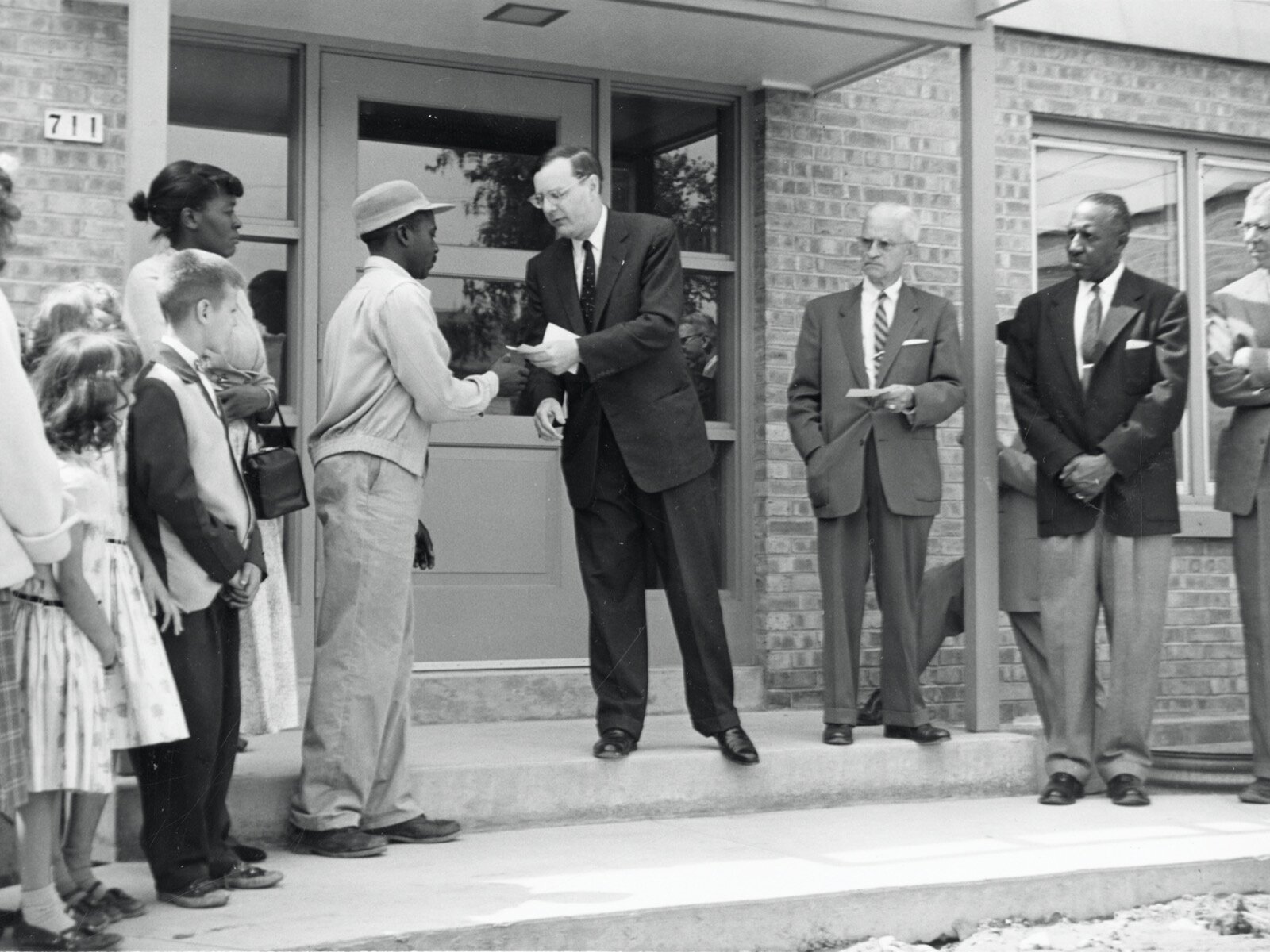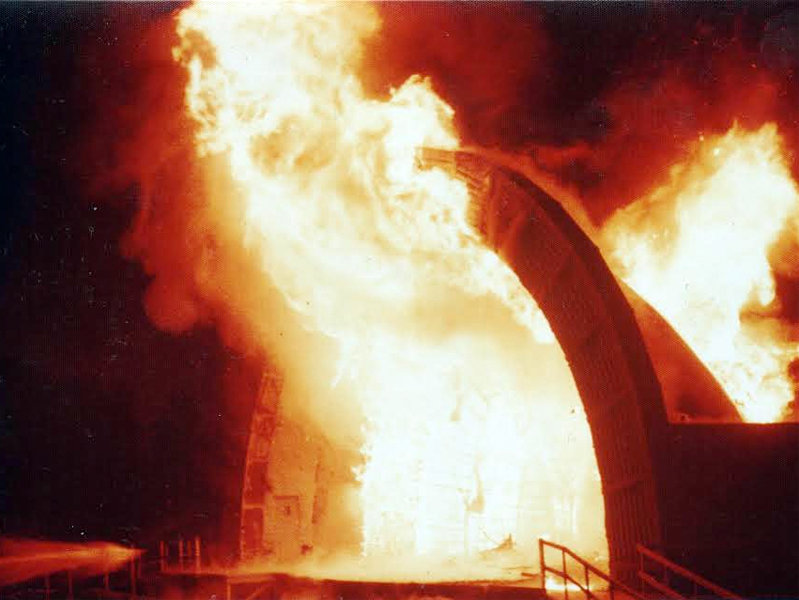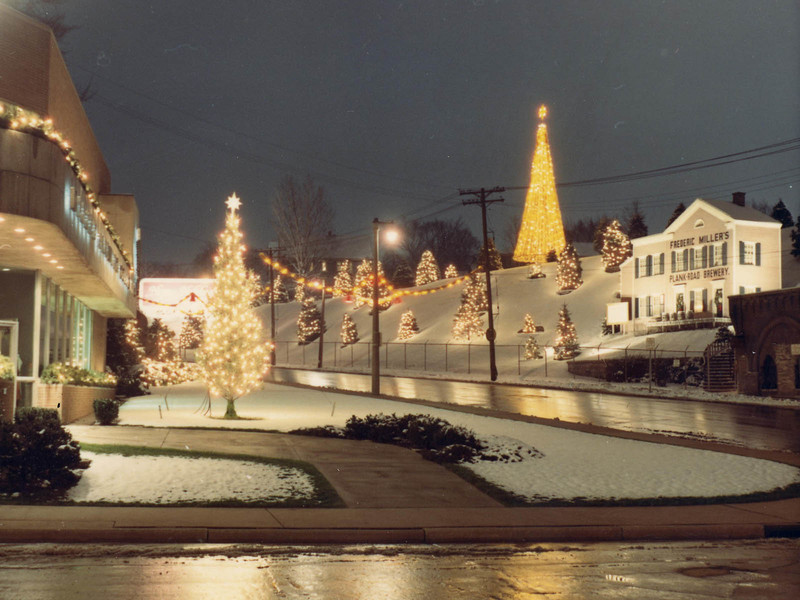Alice Cooper's favorite party conversation fun fact will take the spotlight this week as PBS will debut "America's Socialist Experiment," an hour-long documentary about Milwaukee's almost half-century of evolution and reform in the first half of the 20th century – most of it spent under the purview of socialist mayors.
The film will make its way onto most PBS stations across the country throughout the month of June. But fittingly enough, "America's Socialist Experiment" will begin its educational entertainment tour in the state its subject and its creators – including director and prolific PBS filmmakers Steve Boettcher and Mike Trinklein as well as producers Mike Gousha and Lynn Sprangers – call home, with the doc premiering on PBS Wisconsin (Madison, Green Bay, La Crosse, Eau Claire, Wausau and Park Falls/Superior TV markets) on Monday, June 8 at 9 p.m. before it debuts on Milwaukee screens on Tuesday, June 9 at 8 p.m. on Milwaukee PBS, with an encore presentation at 11 p.m.
Before PBS rolls film on this oft-overlooked part of American political history, we got a chance to chat with Gousha – who also serves as the documentary's narrator – about why he wanted to revisit this piece of Brew City's past, why Milwaukee was primed for socialism at the turn of the century and why their era came to an end.
OnMilwaukee: What drew you to this topic and to making this documentary?
Mike Gousha: My wife (Lynn Sprangers) had talked about the possibility of working with a friend of ours, a documentary filmmaker named Steve Boettcher. We were all colleagues at Channel 4 back in the late ’80s, and Steve’s gone on to have a very successful run as a documentary filmmaker. So Lynn and Steve were talking about, "Wouldn’t it be great if, someday, we worked together?" And that led to a larger conversation about what could we do together.
When Milwaukee was selected as the site for the Democratic National Convention – whatever that may ultimately look like – and given that socialism, the word, is such a big part of our political discourse during these times, we thought wouldn’t it be interesting to look at this fascinating slice of American history, this nearly half-century when Milwaukee was led by socialist mayors. A lot of it was the timing – the DNC happening, the fact that socialism is a word that’s used so frequently – and we thought it would be interesting to see what this looked like in practice in a large heartland city.
I think most people wouldn’t assume that something this could happen here in the Midwest. What was it about the city at the time that fostered this?
It was a confluence of a number of factors. Part of it was the ethnicity of Milwaukee – the German population. A lot of Germans had come to Milwaukee in the late 1800s, and many of them were familiar with the idea of socialism, so they brought their politics with them. That was certainly a part of it. Part of it was the rise of organized labor. There was a growing clamor for better working conditions, and organized labor played a big role in the socialist movement in Milwaukee.
And then you combine that with the current conditions at the time. Milwaukee, in the years about 1908-09, was a very corrupt city. It was politically corrupt, but it was also filthy – literally. Huge problems with sanitation, huge public health issues. So the socialists arrived on the scene, and had been running in elections prior to that, and swept into office in 1910 because of the current conditions in the city and because they had this unique set of factors working in their favor – like the large German population. It was a number of things all happening at once that led them to at least establish socialism as a political alternative in Milwaukee.
How come this didn’t catch on in other places the way it did in Milwaukee for such an extended period of time?
There were experiments in that era with socialism in other parts of the country. The first socialist mayor of Milwaukee, for example, Emil Seidel, who only served two years, ran as the vice presidential candidate of a socialist candidate. So there were other places in the country where socialism was being looked at or tried, but Milwaukee by far had the longest run of socialism. You had three mayors in a period of a half-century leading the city – 38 of those 50 years with socialist mayors in charge – and that really didn’t happen anywhere else. Dan Hoan, the second socialist mayor of Milwaukee, had the longest consecutive socialist administration in U.S. history – 24 years, from 1916 to 1940. So we were different in the sense that socialism, at least in leadership, was sustained over a longer period of time whereas in some other places it was tried but didn’t have that sustainability.
It was just kind of one person, not a coherent movement?
There was definitely a socialist movement in the country at that time, but it did not achieve the results that you found in Milwaukee, where socialists were winning major elections. In 1910, if you look at the numbers, in that election, Milwaukee elected the first socialist mayor, a city attorney and a city treasurer – both of whom were socialists – two judges who were socialists, 21 of 35 members of the Common Council, 10 of 16 supervisors and, later that year, they elected the first socialist U.S. congressman. There was a big victory for the socialists in 1910.
As it went on, as the Milwaukee "experiment" as we call it went on, socialism did not keep those numbers in government. So you had mayors who followed Emil Seidel who had to figure out ways to coexist with others. So you saw socialism evolve over time in Milwaukee. It became a very pragmatic, problem-solving approach to government over time.
What happened that, nowadays, we talk about socialism, and it’s almost exclusively referenced to the coasts? It’s an elite, New York and California, hipster approach, and if you propose policy that leans socialist, the refrain is always, "That won’t go over in the heartland." What happened?
This is a fascinating parallel you bring up. When the socialists were in charge in Milwaukee, they were ridiculed by East Coast socialists because they were not considered sufficiently revolutionary. They felt that Milwaukeeans were too consumed by the small things, and they referred to them as "sewer socialists." That label came from the East Coast socialists, and it was a term of derision. As Jeanne Zeidler, the daughter of Frank Zeidler, Milwaukee’s last socialist mayor, said, the Milwaukeeans wore it as a badge of honor. They were proud of being called "sewer socialists," because they said, "Sure, yeah, you East Coast socialists can talk all you want, but you couldn’t be elected dog catcher. We win elections."
And they won elections because they focused on the issues that were most important to people. If you look at the socialists’ legacy, it was trying to restore honesty and integrity to government to get rid of corruption. It was trying to improve public health conditions – and they had a pretty good track record of doing that. It was creating green space for people to use on the weekends. The County Parks system: That’s really a socialist enterprise in a lot of respects. The lakefront that we know today was created during mostly socialist administrations as a way to allow working people to use the lakefront, so the lakefront wouldn’t end on Prospect or Wahl. They put all of this fill into the area along Lincoln Memorial Drive, and they created new green space and new public space so working people could use it. They pushed hard for improved working conditions. Dan Hoan, when he was the city attorney, created the first workers compensation bill in the country in 1911.
What I’m saying is that, at the time, they were paying attention to what you would call the meat-and-potatoes issues of the citizens of the city. They were less concerned about this being revolution. Maybe at the very beginning of the process, they thought that, but over time, they had to become pragmatic. In order to advance some of their goals or their objectives, they had to work with others. They couldn’t go outside the capitalist system; they had to find ways to get things done. And for some on the East Coast, that just wasn’t good enough. They didn’t feel that wasn’t a pure form of socialism.
So to your question, I think there’s still some of that feeling even today. That the people in the heartland don’t get what socialism is. But you have to look at how people feel about their daily challenges. It’s a long answer to your question, but again, what the Milwaukee socialists did was they listened to people and tried to do things that would improve their daily lives. There was less rhetoric – even though the rhetoric at times made people uncomfortable; John Gurda told us that in a taping for the documentary, that some of the rhetoric made people uncomfortable. But there was a feeling that Milwaukee worked, and that’s why they were successful.
Why did this era come to an end?
One of the reasons was that Democrats frankly borrowed a lot of the socialists’ ideas to improve conditions for working people. The New Deal has some of that feel to it. The example I use to say how things were changing: Dan Hoan was the longest serving socialist mayor of a big city in U.S. history, and he became a democrat and eventually ran for mayor again as a Democrat, unsuccessfully. That’s kind of evidence that people didn’t feel the same need for socialism that had existed before.
Another part of it was socialism began to be equated to communism. Frank Zeidler, the last socialist mayor of the city, realized that. Zeidler was actually a pretty staunch anti-communist and devout Lutheran, interestingly, but he knew they were being damaged by the fact that many people saw socialism very much as communism. That was definitely a factor that caused the demise of socialism in this area.
There was the issue of race in Milwaukee at the time. Zeidler was considered by his opponents to be too friendly to the city’s latest newcomers. The African-American population tripled under Zeidler’s tenure, and it was considered that he was too welcoming to this new wave of arrivals in the city.
And then there’s the part where political parties are about sustainability. You’ve got to have leadership in the pipeline, and that didn’t really happen in Milwaukee. So, in some respects, Zeidler was really the last socialist standing, and it just sort of faded away in Milwaukee after that.
One of the people in the film said that there was just this feeling in Milwaukee. Some of the ethnicity wasn’t the same as it was, and Milwaukee in the 1950s was a pretty prosperous town in many respects, so there was less of a reason to have socialism. It was "been there, done that," time to move forward and have a more modern type of government. So it came to the end for the most part when Zeidler decided not to run for re-election in 1960. His daughter told us that he was physically and mentally exhausted at the time. Only 48 years old, interestingly, and had been mayor for 12 years.
Do you think something like that could happen again in Milwaukee? Not even the sustained version, but do you think Milwaukee could again elect a socialist politician to a significant office?
"I don’t know" is the short answer. I think the word "socialism" is viewed quite differently today than it was in Milwaukee in the 1920s, or teens, or ‘30s, or ’40s, or even the ’50s. People have a view of what socialism is; I think many people think of it as what exists in Venezuela or places like that. Milwaukee’s brand of socialism was distinctly different from that; it was a very local brand in many respects. So I don’t know. I’ll leave that for others to speculate; lots of people are good at that.
"America's Socialist Experiment" will air in Milwaukee on Tuesday, June 9, at 8 p.m., with an encore showing at 11 p.m.
As much as it is a gigantic cliché to say that one has always had a passion for film, Matt Mueller has always had a passion for film. Whether it was bringing in the latest movie reviews for his first grade show-and-tell or writing film reviews for the St. Norbert College Times as a high school student, Matt is way too obsessed with movies for his own good.
When he's not writing about the latest blockbuster or talking much too glowingly about "Piranha 3D," Matt can probably be found watching literally any sport (minus cricket) or working at - get this - a local movie theater. Or watching a movie. Yeah, he's probably watching a movie.







